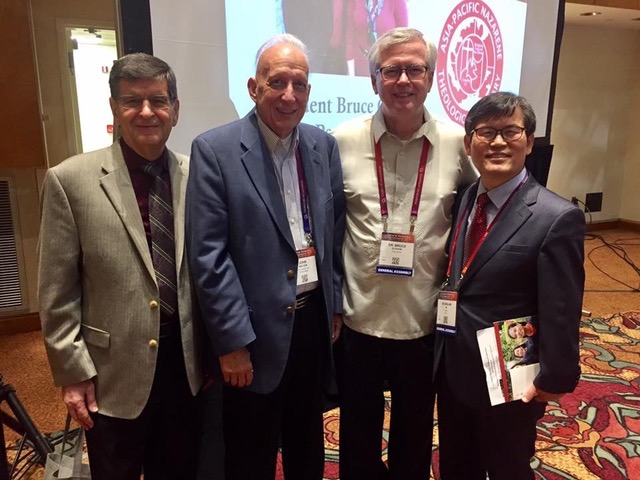
LeBron Fairbanks, retired Education Commissioner; Sanil Dange, former president of the South Asia Nazarene Bible College and Field Strategy Coordinator, India Field
Several years ago, I read the book, CROSS CULTURAL CONNECTIONS. In the book, the author states that “what John 3:16 is to the unbeliever, Romans 15:7 is to the believer.” Romans 15:7 reads: “Accept one another then, just as Christ accepted you, in order to bring praise to God.”
I remember the impact that statement had on me. I asked my wife to quote John 3:16; she did. Then I asked her to quote Romans 15:7. She could not, nor could I. For the next few days the words of the author preoccupied my mind: “What John 3:16 is to the unbeliever, Romans 15:7 is to the believer.” I begin to probe the words of the text and of the author, and their implications for leading others in communities of faith.
Four months later, I was scheduled to co-lead a “leadership track” with Dr. John Bowling at the Eurasia Region Leadership Conference in Turkey. The more I reflected on the Romans 15:7, the more I concluded it contained profound insights for Christian servant leaders. I chose to focus in the workshop on a distinctively Christian attitude that leaders must cultivate if we are to be worthy our identity as Christ-like leaders. I spoke on the subject, THE ATTITUDE OF ACCEPTANCE.
Increasingly, this ATTITUDE OF ACCEPTANCE must identify and define us as biblical servant leaders. It is at the heart of all we are.
Acceptance is the ability to communicate value, regard, worth and respect to others. It is the ability to make people feel significant, honored and esteemed. This is leading “with the mind of Christ.” To intentionally accept and serve others is to love them.
Acceptance is a profound biblical principle for Christian leaders, especially when good and godly people collide over vision and values in a community of faith.
What is the opposite of acceptance? Is it not rejection? How does the rejection by others make you feel? How do you think rejection of others makes them feel? How does rejection of others within a community of faith affect your own relationship to God?
I believe this grace-filled acceptance of others is a core Christian leadership quality that must be cultivated. And, I am convinced that an ATTITUDE OF ACCEPTANCE is shaped and nurtured by three compelling convictions about:
- who we are as the People of God;
- what we are to do in the work of God; and
- how we live together as the family of God.
And these convictions become driving forces within us as we live and lead with an acceptance of those with whom we live and work.
What do you think about these statements?
To read the full manuscript of the presentation, Click here. The Powerpoint presentation is also available, Click here.
Let me probe more deeply. As you think of your leadership environment—home, community, district, church, region, denomination—who do you have the most difficulty accepting? As you view yourself as a leader of leaders, what kinds of people are hardest for you to accept?
- Why do you think this is so?
- How do you think this makes God feel?
- How do you think God sees that person—or those persons?
- How does your response affect your own relationship to God?
The overarching question is this: How can we increasingly reflect an acceptance of others with the community of faith we serve?

September 2009 – South India Biblical Seminary Quality and Missional Review Consultation team (left to right): Antonie Holleman, European Nazarene College; LeBron Fairbanks, retired Education Commissioner; Kent Brower, Team Chair and Nazarene Theological College – Manchester; Sanil Dange, former president of the South Asia Nazarene Bible College and Field Strategy Coordinator, India Field; John Haines, Regional Education Coordinator – Eurasia Region





